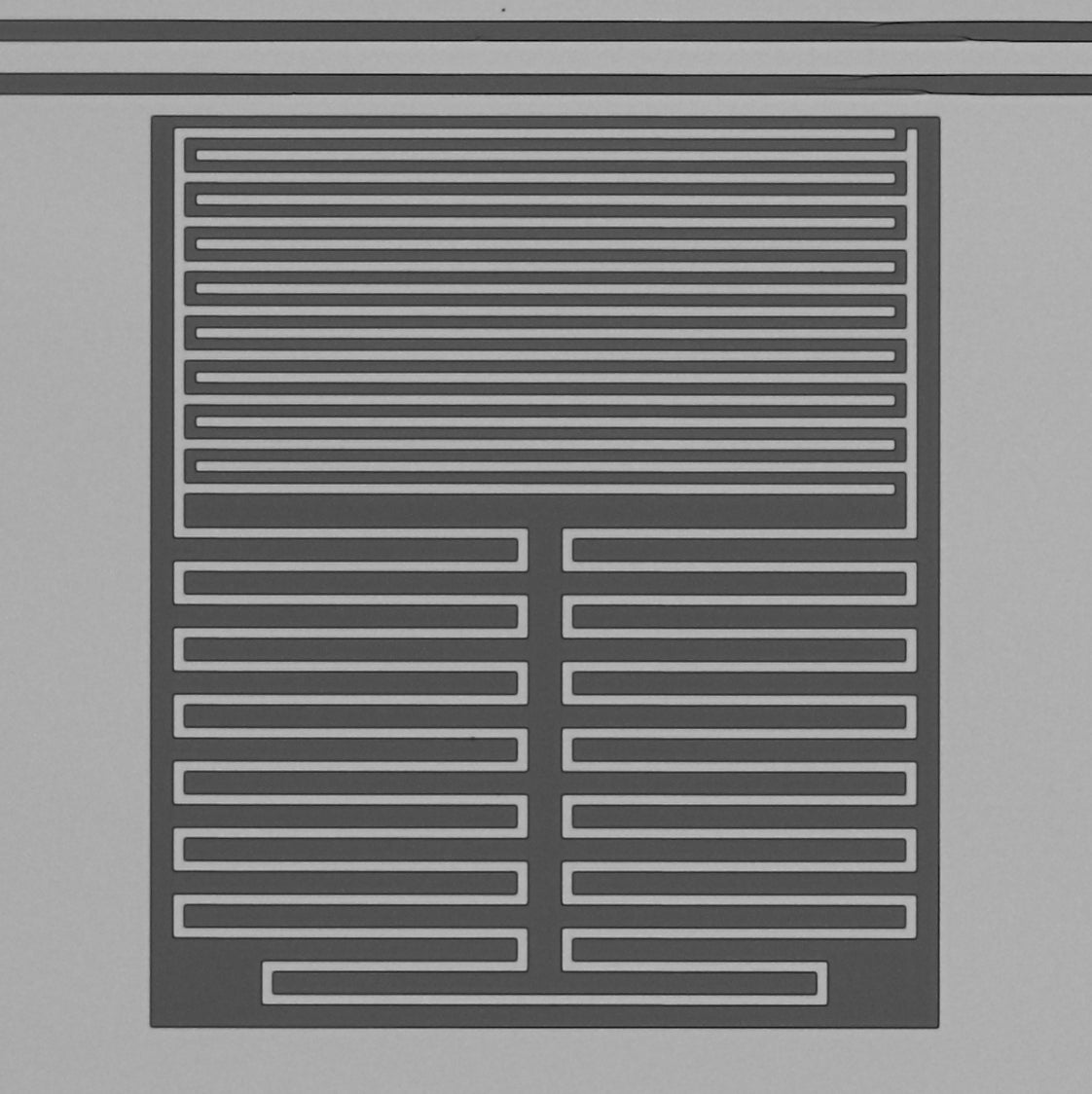With the quantum age on the horizon, scientists are working to develop quantum computers that will have a processing speed exponentially faster than today’s most advanced supercomputer. Building a useful quantum computer is one of the great engineering challenges of our time. In all implementations, qubits that are reliable, stable, and scalable are essential in this endeavour.
The accuracy and reliability of qubits is being investigated by a group of researchers lead by Dr. Matteo Mariantoni, a professor in the Department of Physics and Astronomy and faculty member at the Institute for Quantum Computing (IQC). The research team is working with superconducting quantum circuits, which are currently among the leading platforms in efforts to develop a quantum computer.

Aluminum superconducting electrical resonator circuit. TLSs are defects thought to be located on the surface of the aluminum layer (white) and exposed silicon (gray).
Using chips comprised of aluminum layers on top of silicon wafers, the group is creating superconducting devices. As researchers build toward fully functional quantum computers with this technology, it is essential to understand and measure the amount of decoherence – the loss of quantum information due to loss or noise – in a circuit. These effects need to be remediated or minimized for any future quantum computer to function well and yield accurate results.
Superconducting circuits are affected by defects in the surrounding material called “two-level systems” (TLSs) which, much like qubits, can be in one of two distinct energy levels, either a ground state or an excited state, at any given moment. In a previous study conducted by the research group, they observed that thermal fluctuations between ground and excited states of TLSs cause qubit decoherence and necessitate constant recalibration of the qubit control parameters. In this continuation of their work, they have shifted their focus from qubits to resonators, another type of quantum object essential for quantum computing, in order to better understand the physics of TLS defects.
To read more about this research please visit Institute for Quantum Computing News.